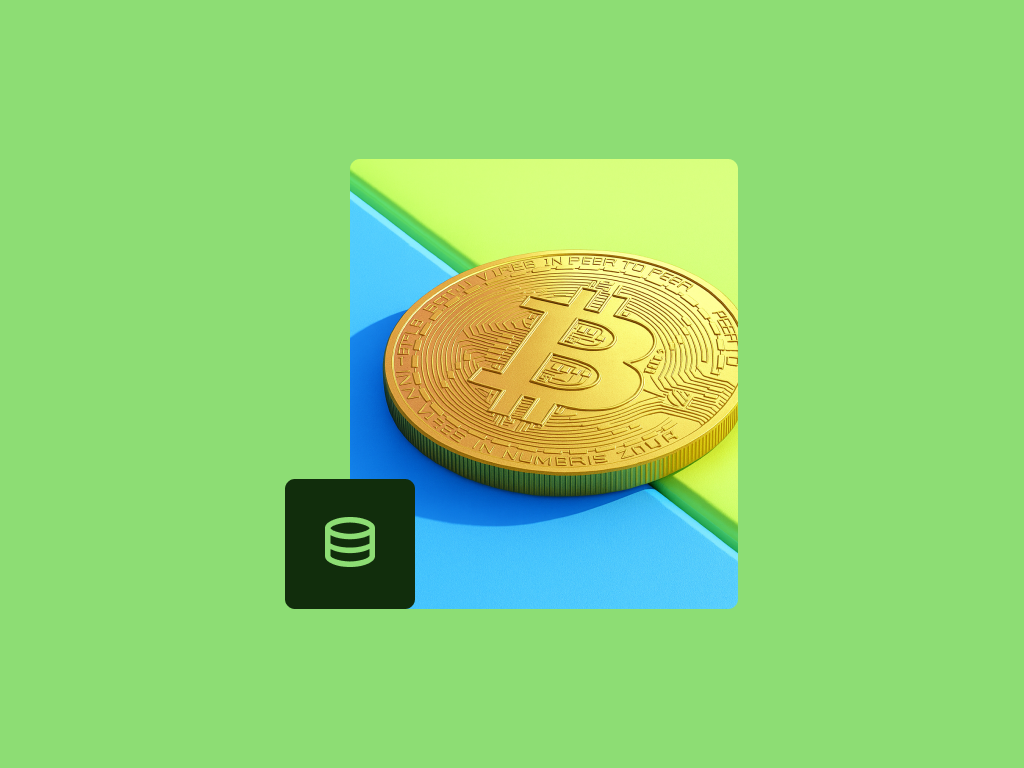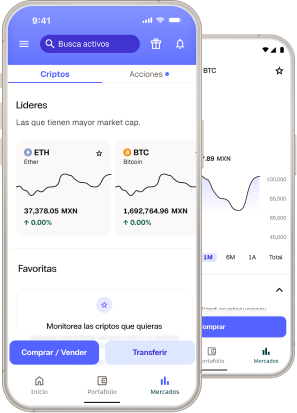¡El ETF de ether al contado finalmente ha sido aprobado por la Comisión de Bolsa y Valores de EE. UU. (SEC)! Eso es una gran noticia para el mundo cripto.
Si te interesan las criptomonedas, probablemente ya habrás escuchado sobre la reciente aprobación del ETF de bitcoin y lo significativo que fue. Bueno, pues ahora que ha sido aprobado el ETF de ether, algunas personas creen que esta cripto podría experimentar un crecimiento mucho mayor al de bitcoin con su ETF.
¿Qué es un ETF?
Un ETF (Exchange-Traded Fund o Fondo Cotizado en Bolsa) es un tipo de fondo de inversión que se negocia en las bolsas de valores, al igual que las acciones individuales.
Un ETF negocia activos como acciones, materias primas, bonos, etc., a la par o muy cerca del valor neto de dichos activos, aunque ocasionalmente pueden ocurrir desviaciones.
Un ETF al contado de ether es un fondo que se negocia en bolsas de valores tradicionales, siguiendo el precio de esta cripto.
Esto permite a los inversionistas tener acceso a ether sin tener que comprar y gestionar la criptomoneda directamente. Esto abre el mercado a muchos inversionistas que, en otras circunstancias, no invertirían en criptomonedas.
ETF de ether vs. ETF de bitcoin
Pero, ¿por qué podría ser el ETF de ether más prometedor que el ETF de bitcoin?
Alrededor del 27% de todo el ether está actualmente en staking, lo que significa que las personas bloquean su cripto en una red blockchain específica por un período de tiempo para ayudar a mantenerla en funcionamiento y, a cambio, obtienen recompensas. Esto reduce la oferta, haciéndolo más valioso conforme a las dinámicas del mercado tradicional.
Bitcoin, por el contrario, no admite staking porque utiliza un mecanismo de consenso diferente para mantener funcionando la red, llamado Prueba de Trabajo (POW=Proof of Work).
Cada día se hace más staking de ether, y es probable que esta tendencia continúe. Con la aparición de nuevos métodos de staking que ofrecen recompensas más altas, ether se está convirtiendo en una oportunidad de inversión aún más atractiva.
Ether vs. acciones tradicionales
La naturaleza descentralizada de Ethereum la distingue de las empresas tradicionales. Esto quiere decir que no hay un CEO ni una mesa directiva que tome posibles decisiones en contra de la red, agregando así una capa de seguridad para los inversionistas.
Casi el 40% de todo el ether está bloqueado en contratos inteligentes, principalmente en protocolos DeFi, reduciendo aún más su oferta circulante.
Empresas importantes como PayPal y BlackRock están involucrándose con Ethereum. A medida que jugadores más grandes se unan, más capital será bloqueado en contratos inteligentes, haciendo que el ether sea aún más escaso.
Es importante decir que, aunque la aprobación de un ETF de ether es un evento significativo, no garantiza la adopción generalizada de esta cripto. El crecimiento de Ethereum depende de la actividad continua en la red, como el staking y DeFi, para mantener su crecimiento.
Sin embargo, el futuro de ether parece prometedor. La aprobación de su ETF podría marcar el comienzo de una nueva era para Ethereum y su ecosistema, al verse impulsado por una mayor inversión e innovación.
Adicionalmente se espera que la introducción del ETF de ether tenga un impacto sustancial en el mercado general de criptomonedas.
Con una mayor accesibilidad y confianza de los inversionistas, podríamos ver una mayor actividad en el mercado a medida que los nuevos inversionistas así como los existentes ajustan sus portafolios de inversión.





